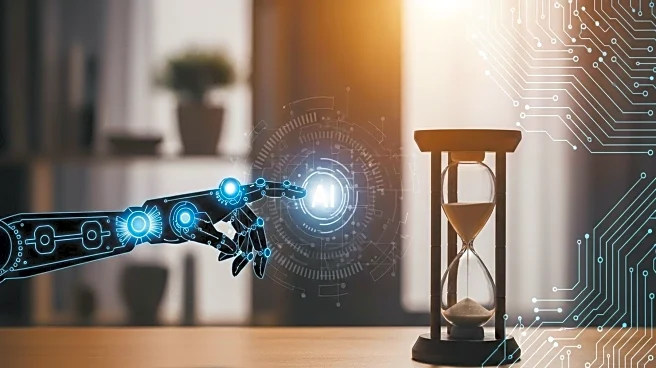What's Happening?
Recent discussions have emerged about the potential merger of HR and IT functions, sparked by developments at Moderna where HR leadership also oversees IT. However, experts argue that merging these functions is impractical due to their distinct roles. The introduction of AI into workplaces is a key driver of this conversation, as organizations seek to integrate AI into jobs to enhance efficiencies. Despite the potential benefits, the process requires significant organizational change and cooperation from employees, who may fear job losses due to AI implementation.
Why It's Important?
The debate over merging HR and IT highlights the complexities of integrating AI into workplaces. Successful AI implementation can lead to increased productivity and innovation, but requires careful management of organizational change. HR's role in facilitating this process is crucial, as it involves aligning employee tasks with AI capabilities while maintaining workforce morale. The discussion underscores the need for strategic leadership in navigating technological advancements and their impact on employment.
What's Next?
Organizations may continue to explore ways to integrate AI into their operations, with HR playing a pivotal role in managing change. Leaders will need to address employee concerns and ensure that AI enhances rather than replaces human roles. The potential merger of HR and IT functions may be reconsidered as companies evaluate the most effective ways to leverage technology for business growth.
Beyond the Headlines
The integration of AI into workplaces raises ethical considerations regarding job security and the future of work. As technology evolves, companies must balance innovation with employee wellbeing, ensuring that AI serves as a tool for empowerment rather than displacement.









